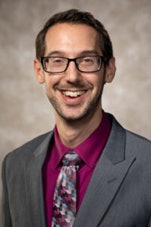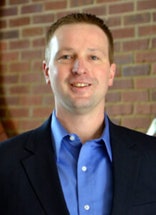As dangerous myths about autism circulate on the national stage, many colleges echo a quieter, yet similarly misguided assumption: that autistic students are socially isolated or incapable of forming meaningful relationships. But the 43 autistic college students we interviewed tell a very different story—one grounded in connection, authenticity, and community, built on their own terms.
 Dr. Karly Isaacson (Ball)
Dr. Karly Isaacson (Ball)  Dr. Brett Ranon Nachman
Dr. Brett Ranon Nachman
As we analyzed the second wave of interviews, one theme stood out: the central role of friendship. Again and again, students described how meaningful friendships shaped their college experiences, not in spite of their autism, but through it. We used this analysis to publish a journal article on autistic college student friendship earlier this month. In this op-ed, we describe three key ways in which autistic college students foster meaningful friendships: engaging in autistic spaces, practicing autistic authenticity, and bonding over shared interests. We hope that understanding how autistic college students think about and experience friendship can ultimately guide colleges in creating more supportive, inclusive environments for this largely misunderstood, minoritized student population. Dr. Bradley E. Cox
Dr. Bradley E. Cox
Autistic spaces offer connection without explanation.
Contrary to the common myth that autistic students are inherently socially disconnected, many participants in our study described finding deep connections in spaces designed by and for autistic people. Whether through formal autism support programs (ASPs), campus disability centers, or informal sensory-friendly spaces, students emphasized how these environments allowed them to engage with others who shared similar communication styles, sensory needs, and lived experiences. These spaces didn’t just accommodate difference—they affirmed it. Catherine T. McDermott
Catherine T. McDermott- Practicing authenticity builds deeper relationships.
For many autistic students, friendship flourished not when they tried to hide who they were, but when they stopped trying. Students described how letting go of masking (a strategy that some autistic people use to appear non-autistic), led to stronger, more affirming relationships. As one student put it, “the more authentic in myself that I become, the stronger my relationships become.” College, for many, provided a rare opportunity to explore what it meant to show up fully as themselves, autism and all. This wasn’t always easy. Several students shared fears of judgment or past experiences of exclusion, and some still found themselves masking in certain spaces. But when peers responded with respect and curiosity—whether during a class presentation, a theater performance, or an informal hangout—autistic students said they felt “seen,” “heard,” and “valued” when they presented their autistic characteristics and were met with acceptance. Vulnerability often became a gateway to connection. One participant recounted the anxiety of playing pool with friends, worried about motor difficulties, only to be met with patience and encouragement. These moments of openness helped students discern who was safe, who cared, and who was worth pursuing as a friend. Practicing authenticity didn’t always come without cost—but for many, it made friendship more meaningful and sustainable. - Shared passions spark connection.
While autistic spaces and identity-based connections were vital, students also emphasized another major source of friendship in doing what they love. Shared interests—from playing Dungeons & Dragons to Taylor Swift fandoms—created natural entry points for relationship-building. Nearly every autistic college student we interviewed was involved in a club, job, or hobby that helped them find “their people.” These weren’t just time-fillers or a line to add to a resume—they were genuine community builders.
Many autistic students created their own spaces when they couldn’t find an existing affinity group or organization. One started a disability advocacy club; another launched an American Sign Language (ASL) group; a third founded a fiber arts circle. Whether through casual gaming nights, photography collaborations, or cat playdates, students built friendships by doing things they genuinely cared about—often with people who shared their pace, humor, and communication style. As one student shared, it meant everything to have even “just one person to go to coffee with who actually cared about the topic.” In these spaces, autistic passions weren’t sidelined—they were celebrated. And when peers leaned into those interests too, genuine friendships blossomed.
In a time when public discourse too often distorts what it means to be autistic, colleges have a unique opportunity—and responsibility—to listen to autistic students themselves. Our research shows that autistic students are not only capable of forming meaningful friendships, but that they do so in ways that are intentional and creative. Colleges that invest in spaces for connection, support students in showing up authentically, and celebrate shared interests will not only dismantle outdated stereotypes—they will foster communities where all students can thrive.
Dr. Karly Isaacson (Ball) is a Postdoctoral Research Associate at Michigan State University for Project PEACES.
Dr. Brett Ranon Nachman is an Assistant Professor of Higher Education at the University of Pittsburgh and Director of Research for College Autism Network.
Dr. Bradley E. Cox is an Associate Professor of Higher, Adult, and Lifelong Education (HALE) at Michigan State University and Founder of the nonprofit College Autism Network.
Catherine T. McDermott is a consultant for Project PEACES and Founder of McDermott Autism Services.
















